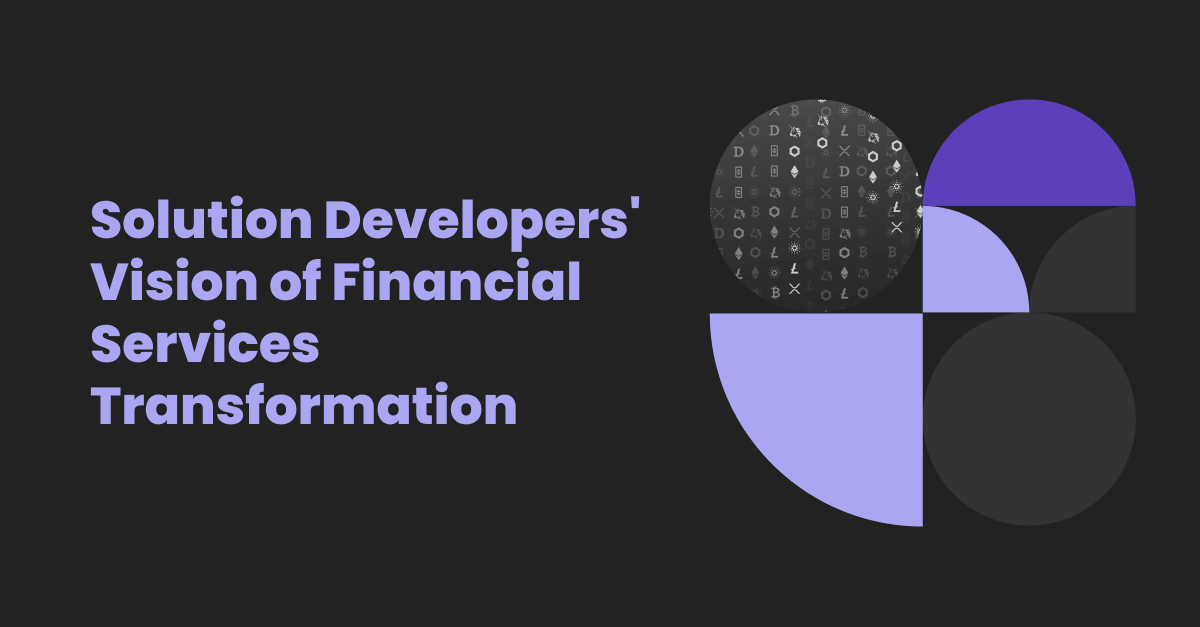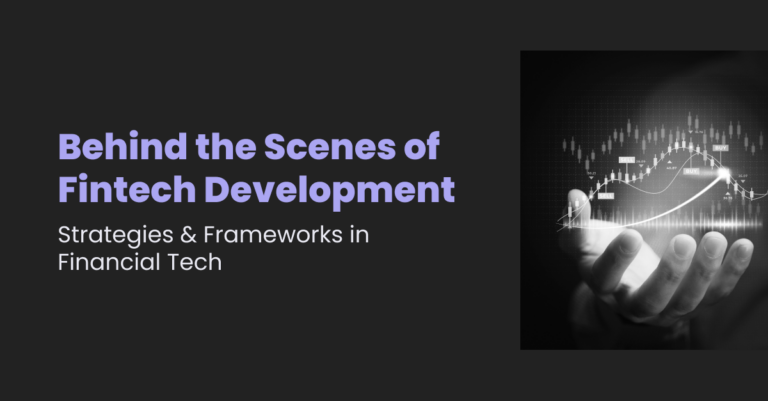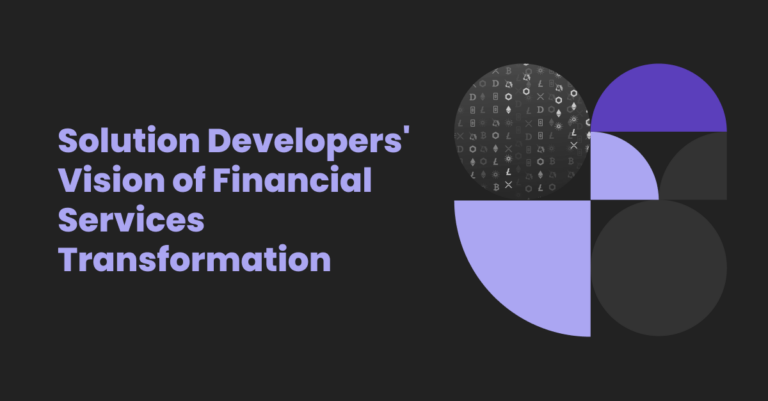The financial services industry is currently undergoing a remarkable transformation, with technology playing a pivotal role in reshaping the landscape. Fintech development companies are at the forefront of this revolution, creating innovative solutions that are redefining the way individuals and businesses engage with their finances.
The global fintech adoption rate among digitally active consumers reached 64%(Source: EY Global Fintech Adoption Index). This statistic showcases the widespread embrace of fintech solutions by individuals across the world, highlighting the industry’s significant impact on the way people manage their finances.
Why is it important to be on the same wavelength with digital development?

Competitive Advantage: Fintech is a rapidly evolving industry, and companies that embrace the latest technologies can differentiate themselves and offer innovative solutions that attract and retain customers.
Customer Expectations: Advancing digital tech alters expectations, with users seeking seamless, user-friendly, and convenient financial services. Falling behind in digital development can lead to losing customers who prefer more tech-advanced alternatives.
Efficiency and Cost Savings: Digital development often leads to increased efficiency and cost savings. Automation and improved processes can reduce operational expenses, making fintech companies more profitable and agile.
Innovation and Growth: Digital development fosters innovation, which is key to business growth. Fintech companies that embrace new technologies can create new products and services, enter new markets, and expand their customer base.
Core Technologies Powering the Fintech Revolution

The fintech revolution is in full swing, driven by a slew of core technologies that have transformed the financial landscape. Technology, the dynamic force behind this revolution, is redefining the industry, providing unprecedented accessibility, convenience, and efficiency in financial services.
Blockchain and Cryptocurrencies
Blockchain and cryptocurrencies disrupt traditional financial systems by offering transparency and security, reducing reliance on intermediaries. The rise of digital currencies has the potential to reshape the banking industry, making them highly relevant in the financial landscape.
Artificial Intelligence and Machine Learning
Artificial Intelligence and Machine Learning enable data-driven decision-making and predictive analytics. They provide valuable insights and predictions, empowering traders, investors, and financial institutions to make informed choices.
Big Data and Analytics
Big Data and Analytics transform customer interactions and services by tailoring financial products based on user behavior. This results in improved customer experiences and real-time risk assessment and fraud detection.
Mobile Banking and Digital Wallets
Mobile banking and digital wallets have become highly relevant due to the convenience and accessibility they offer. They have fundamentally changed how financial transactions are conducted, making them an integral part of modern financial services.
Challenges Faced by Fintech Companies in Development

Fintech development companies are at the forefront of the transformation, constantly pushing the boundaries of what’s possible. At Develux, we grasp the digital shift’s importance and are committed to empowering your business to thrive in fintech and navigate challenges effectively.
- Regulatory Hurdles and Compliance
The financial industry must keep up with evolving regulations to avoid costly legal issues, fines, and damage to their reputation. Compliance demands substantial resources, which can burden the budgets of early-stage fintech startups. - Cybersecurity Threats
Fintech companies manage sensitive financial data, making them prime targets for cyberattacks. To protect customer trust and prevent legal and financial losses, they must continually invest in robust security measures. - Legacy System Integration
Fintech firms encounter difficulties integrating their modern solutions with traditional banks’ outdated legacy systems. Achieving seamless integration demands significant time, resources, specialized expertise, and navigating bureaucratic processes within traditional banks. - Insufficient Specialized Developers
The shortage of highly specialized developers can lead to delays and subpar fintech products. Experts in the field possess the necessary knowledge and skills to navigate the complexities of financial systems, ultimately ensuring the quality and timeliness of development. - Development Costs
The high costs associated with fintech development can strain the resources of startups and established companies alike. However, working with experts optimizes costs and ensures efficient resource allocation in compliance, security, and system integration.
While fintech development is filled with challenges, it’s clear that expertise matters at every step of the way. Working with experienced professionals who understand the industry’s nuances can make a significant difference in successfully overcoming these challenges and thriving in the rapidly evolving fintech landscape.
The Future of Financial Services: Predictions and Trends

The financial services industry is undergoing a profound transformation, driven by technology and changing consumer expectations, fundamentally reshaping how we interact with financial services.
Continued Integration of AI and Automation
AI and automation are set to play an increasingly prominent role in financial services. Predictive analytics and chatbots are becoming commonplace, improving customer experiences and streamlining operations. These technologies will not only enhance efficiency but also enable more personalized financial advice and services.
The Global Expansion of Fintech Solutions
Fintech solutions are going global, revolutionizing access to financial services with digital payments, peer-to-peer lending, and blockchain innovations. This expansion presents opportunities and challenges as fintech adapts to diverse regulations and consumer preferences.
Possible Merger of Traditional Banking and Fintech
As fintech continues to disrupt traditional banking, the possibility of a merger between these two worlds looms on the horizon. Traditional banks are exploring partnerships and acquisitions with fintech startups to stay competitive, potentially ushering in a new era of financial services that combines traditional stability with fintech innovation.
Conclusion
It is evident that digital transformation is the key to success in the ever-evolving fintech landscape. Embracing technology and staying at the forefront of digital innovations is not just advantageous but a necessity for businesses looking to thrive in the financial services industry.
















